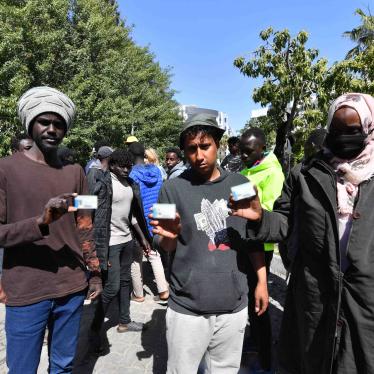A new “political agreement” to overhaul the European Union’s asylum and migration system will severely curtail the rights of migrants, asylum seekers, and refugees. Despite triumphant rhetoric surrounding the announcement, these reforms are no cause for celebration.
The December 20 agreement between the European Commission, the European Parliament, and EU member states covers major pieces of EU legislation relating to border management, asylum procedures, and data collection. The changes are based on deterrence, an approach proven to be both ineffective and abusive.
The European Council on Exiles and Refugees, an alliance of nongovernmental groups working on migrants’ rights, described the changes as “byzantine in their complexity and Orban-esque in their cruelty.”
Under the new system, many people who arrive irregularly, including those disembarked after a rescue at sea, will be detained and channeled into substandard accelerated asylum procedures that strip safeguards available under normal procedure, such as legal aid. Children as young as six years old will be fingerprinted.
The package includes a “crisis regulation” that will allow EU countries experiencing a vaguely-defined “mass influx” or a “situation of instrumentalization of migrants by a third country or non-state actor” to derogate from key human rights obligations, moving closer to legalizing the denial of the right to asylum.
Unfortunately, the changes do little to remedy the abject failure of EU member states to work together equitably to shelter and process asylum seekers and migrants who arrive irregularly. The EU hasn’t budged in its long-standing shifting of these responsibilities to countries at its external borders, which incentivizes states like Greece, Italy, Malta, and Cyprus to ignore boats in distress at sea and engage in unlawful pushbacks. A new “solidarity mechanism” will allow states to refuse to relocate people and instead pay for border fences, barbed wire, and surveillance.
In the three years since the European Commission proposed the Migration Pact, torturous negotiations have made the final product worse than feared. Member states are claiming wide powers of discretion in migration management at the expense of people’s rights.
Combined with the EU’s efforts to shift responsibility to neighboring countries like Libya, Tunisia, Turkey, and Egypt, the Migration Pact signals the bloc’s total disregard for the rights of people on the move and stands in stark contraction to the EU’s core values.








